Long hippie robes, flower necklaces and transfigured looks full of deep contentment – when the Beatles traveled to India in 1968 to visit the Hindu guru Maharishi Mahesh Yogi, these images aroused widespread interest in Far Eastern philosophy and meditation in Western society for the first time. The band members wanted to attend an introductory course in transcendental meditation in Rashikesh, India, and at the same time celebrate ideals of the hippie movement such as free love and humane, peaceful coexistence. 800 journalists accompanied them. (1)
A few years later, the later Apple founder Steve Jobs also went to India in search of a deeper meaning to life. In addition to this spiritual journey, he is connected to the Beatles by a passion for music and perfection, his admiration for John Lennon, and a 30-year legal dispute over the name Apple.
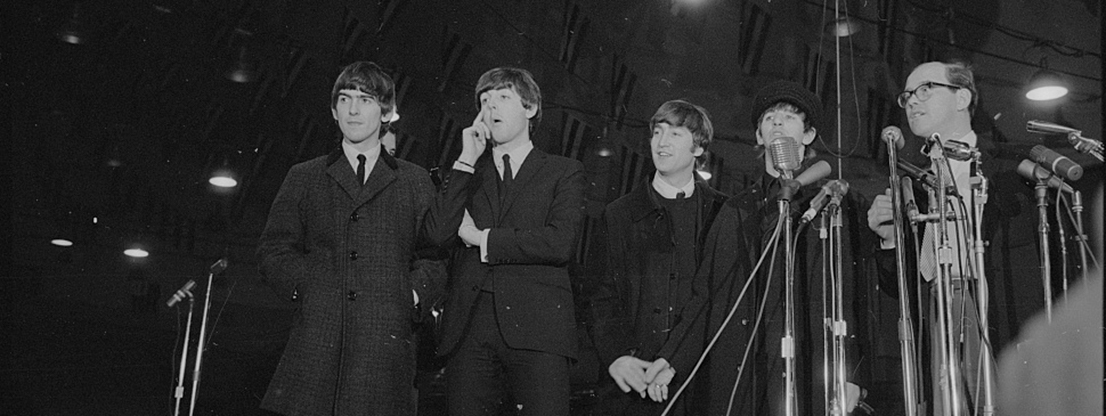
The Beatles in the throes of success
With more than 600 million records sold, the Beatles’ career is an unprecedented success story. Quickly, every concert, indeed every public appearance, turned into a mass event. Above all, the ecstatic adoration of female fans took on increasingly problematic features. Often the band could only reach their concerts under massive police protection. Gradually, the hype surrounding the band members became too much.
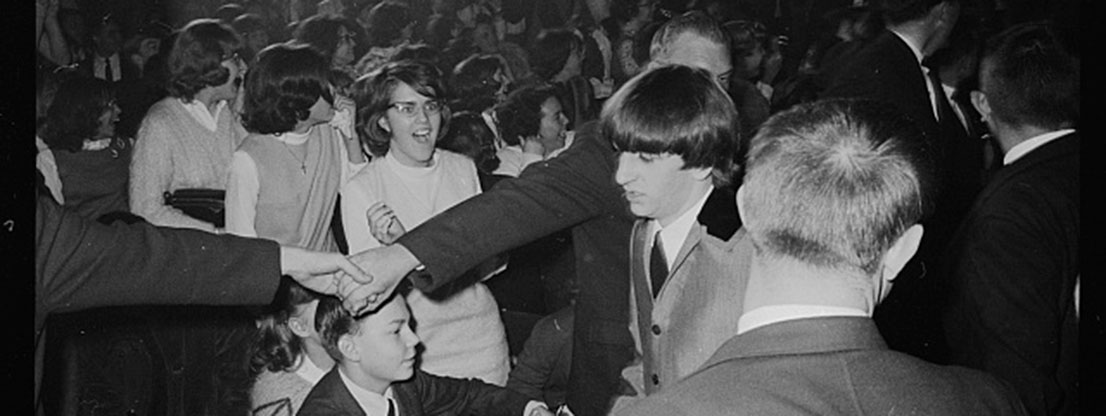
Turning away from the public
After their fourth tour, to Chicago in 1966, the band finally turned their backs on live concerts, frustrated that their music was completely drowned out by the shrill screams of the fans. At a press conference, they also took a stand behind the peace movement and criticised the USA’s war in Vietnam. Public record burnings and demonstrations by the Ku Klux Klan followed.
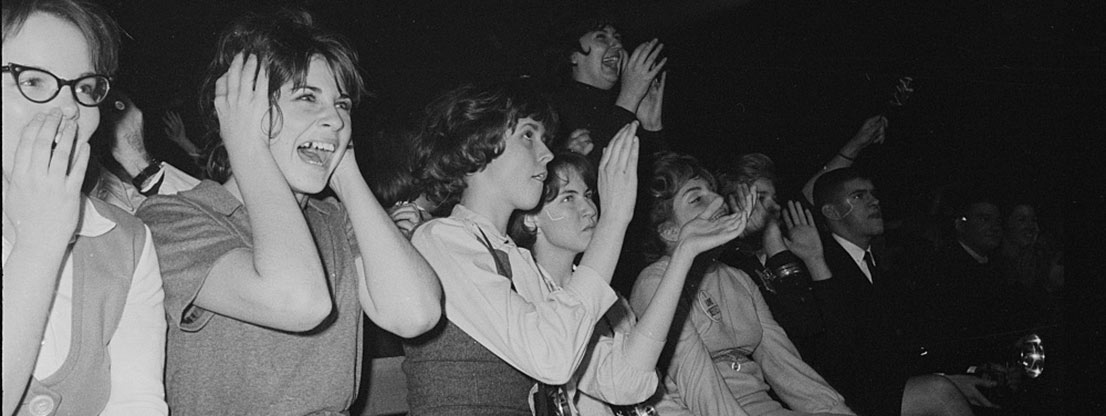
Searching for a different path – meditation and spirituality
During this time, the band members, but especially George Harrison, became interested in meditation and Hinduism. Harrison’s interest was also aroused by the consumption of psychoactive substances. Inspired by Harrison, the Beatles attended a seminar in 1967 in Wales with the Indian guru Maharishi Mahesh Yogi, who teaches transcendental meditation, a variation of Indian mantra techniques.
According to Maharishi, transcendental meditation is the simplest path to happiness and fulfilment. Followers are said to gain access to the “source of creation” and “cosmic consciousness” through the method of TM.
Disciples of the Guru
During their introductory weekend, the group received notification of the death of their manager Brian Eppstein in London. The Beatles left and postponed the spiritual quest. However, George Harrison and John Lennon publicly promoted Maharishi’s teachings, making transcendental meditation internationally known. As the Beatles’ new “house guru”, Maharishi used his increased popularity to give lectures all over the world. (2)
The Beatles travel to India

In February of the following year, the band traveled to Maharishi again for a meditation course lasting several weeks. Together with a small group of other course participants and broadcast by countless journalists all over the world, they allowed themselves to be introduced to Transcendental Meditation. They walked through the gardens draped with flower necklaces, washed in the river, played the guitar and sang. The images were broadcasted all over the world and aroused widespread interest in Hinduism, Buddhism and meditation among the Western public.
The Time in India – Most Productive Phase of The Beatles?
However, the individual band members followed Maharishi’s teachings with varying degrees of ambition. Ringo Star returned to England as early as March, Paul McCartney three weeks later. Only John Lennon and George Harrison stay until mid-April.
The time in India was perhaps the Beatles’ most productive phase. Lennon and Harrison wrote 48 songs, 18 of which made it onto the white album released a little later.

Break with the guru
After rumours arose that Maharashi had seduced a participant in the course and harassed other participants, Lennon and Harrison finally left India in mid-April in a huff. “The guy is just another horny goat,” John Lennon told a reporter indignantly.
In the song Sexy Sadie, the former disciples process their disappointment about the wrong guru. Later, however, they apologise personally to Maharishi. The rumours have never been confirmed. (2)
The Beatles found Apple Corps
On 11 March 1968, John Lennon and Georg Harrison introduce the Apple Corps label. It was supposed to be dedicated to promoting young talent in music, film and art, but was never really successful. The Beatles’ White Album is still released on the label, but shortly afterwards the band members go their separate ways by mutual agreement. The label’s name Apple would later lead to a 30-year legal dispute with Steve Jobs’ company of the same name.
Steve Jobs and the Beatles
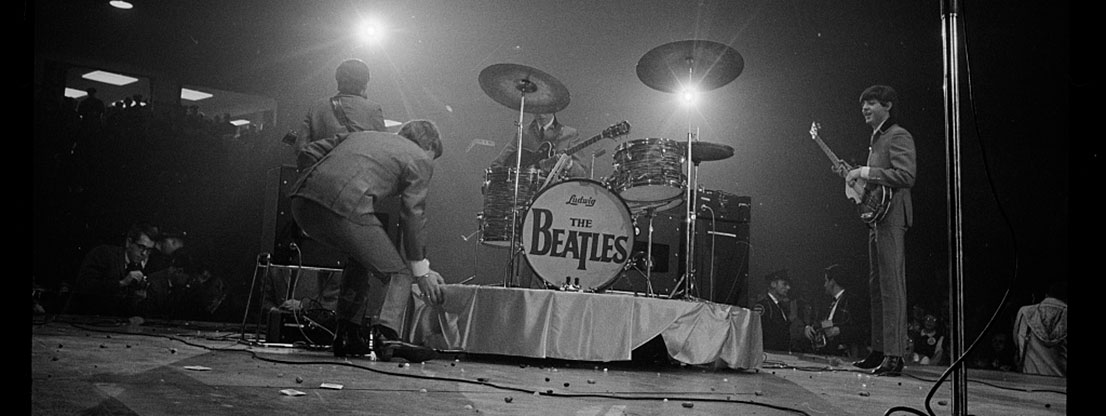
Steve Jobs, the mastermind and one of the founders of the technology company Apple, has admired the Beatles and especially John Lennon all his life. His private collection includes recordings of rehearsals of the song “Strawberry Fields Forever”.
Jobs is particularly fascinated by the perfectionistic way of working behind the song. Time and again, Lennon stops the recording because of individual chords that don’t sound perfect. For months, the Beatles tweaked their song over and over again. A perfectionism that ultimately makes the difference between an average song and a masterpiece. Jobs later tries to transfer the Beatles’ artistic standards to his own work at Apple. (3)
Jobs in search of spirituality

Steve Jobs’ life is marked by a constant search for a deeper meaning. When he attended Reed College in 1972, the heyday of the student and hippie movement was just over. Many young people were looking for alternative ways of life.
Jobs, his student friend and hippie Daniel Kotte and his girlfriend Elisabeth Holmes set up a meditation room in an attic. Together they attended love festivals at the Hare Krishna temple or went to a nearby Zen centre for free vegetarian meals.(4)
Steve Jobs trip to India

In his youth, Jobs devoured countless books on the subjects of meditation and spirituality. Like the Beatles, he also travelled to India in 1974. “I was inspired by the idea of enlightenment and wanted to find out who I was and how I fit into the scheme of things,” Jobs later described his journey.
Via New Delhi he travelled to West India and finally lived for several weeks in a village in the Himalayas. He slept on a mattress with a local family and explored the village and its surroundings. (5)
Jobs and the Guru
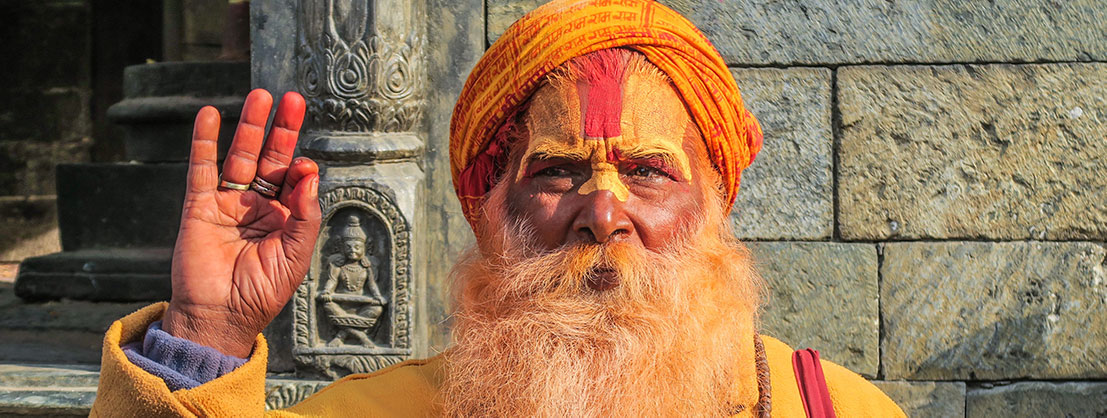
When he heard that a guru had gathered nearby with his followers, Steve Jobs seized the opportunity for a profound spiritual experience. Arriving at the gathering, he first pounced on the prepared food buffet, seized by ravenous hunger. The guru burst out laughing when he saw this. “You are like a baby,” he said to Jobs. He took him by the hand and, accompanied by a crowd of close followers, led him along a path into the mountains. Arriving at a small lake with a fountain, he pulled out his knife, lathered Jobs, who by now had become a little queasy, on the head and shaved off his long-grown hair. (6)
After this strange experience, Jobs travelled further through the country. Now, however, less in search of a guru than of enlightenment, solitude and asceticism. When he finally returned to America, his parents, who were picking him up at the airport, walked past him several times. The young man with a short-cropped head, dressed in yellow Indian robes, was hardly recognisable. (7)
Back in America
Throughout his life, Jobs adhered to some of the principles he had learned on his journey. Above all, Prajñā, the wisdom of intuition that comes from mental concentration, had convinced him. Jobs himself said in retrospect: “Intuition is a very powerful instrument, in my opinion much more powerful than the intellect.”
In America, Jobs meditated regularly and studied Zen Buddhism in particular. At times, he even considered going to a monastery in Japan. Finally, he found a local Zen teacher in Kobun Chino Otogawa, with whom he met almost daily in the meantime and with whom he built up a close relationship. (8)
Steve Jobs and Apple

In the perception of the hippie movement, the emerging computer technology turned into a symbol of liberation in the early 1970s. The hippies’ anarchic way of thinking is particularly well suited to finding one’s way in the nine world of computers.
With the decision to sell a fully functional computer, Jobs and friends from the hippie milieu founded the garage company Apple in 1976. They chose the name partly because it radiated friendliness and simplicity and took the edge off the term computer. Apple quickly developed into one of the largest tech companies, which soon expanded into many other business sectors with the App Store and iTunes. [9]
Dispute over the name Apple

Apple Corps v. Apple
In 1978, two years after the company Apple Computers was founded, it was sued for the first time by the Beatles’ record label Apple Corps for trademark infringement. After three years of litigation, they finally agreed on a one-time payment of 80000 euros for the use of the name. In addition, it was contractually stipulated that Apple Computers would never be allowed to market music products, Apple Corps never computers. An arrangement that was considered innocuous at the time.
Controversy over iTunes
However, while no member of the Beatles ever produced a computer, Apple was oriented towards technological advancement. Soon they integrated a music-playing function into their computers, which is why Apple Corps sued Apple Computers again in 1991. When the iTunes Store went online in 2003, a lawyer for the Beatles complained that Jobs would not honour any agreement. A final settlement was not reached until 2007, when Apple acquired the rights to the Apple name for the equivalent of 500 million euros. The Beatles’ label was allowed to continue to be called Apple Corps. (10)

The Beatles and iTunes
Although the disputes over the Apple name have now been resolved, Steve Jobs is still not satisfied. He is annoyed that the music of his favourite band is not available on iTunes. Although the band members who are still alive would not object in principle, they still have to settle differences over the digital rights of their songs with EMI Music. Steve Jobs said that one of his wishes was to have the Beatles’ music available on the iTunes Store during his lifetime.
The Beatles on iTunes
In the summer of 2010, the time had finally come. The Beatles and EMI came to an agreement. The Beatles were given a place on the iTunes homepage. In addition, Apple made several commercials that always ended with a black-and-white photograph of Paul McCartney and John Lennon.
They also jointly released a box set that included a video of the 1964 Washington Coliseum concert alongside all 13 of the Beatles’ studio albums. The Beatles and Steve Jobs got together just in time. In 2011, Jobs died of cancer. (11)
Sources
[1] David Baldinger: Als der Summer of Love die Beatles zu Hippies machte, ORF, 2017, Online.
[2] Alex Raak: Der Lieblingsguru der Beatles, Der SPIEGEL, 2018, Online.
[3] Walter Isaacson: Steve Jobs. Die autorisierte Biografie des Apple-Gründers, 2011, Seite 495
[4] Ebd., Seite 56f
[5] Ebd., Seite 57
[6] Ebd., Seite 69
[7] Ebd., Seite 71
[8] Ebd., Seite 72
[9] Ebd., Seite 81
[10] Ebd., Seite 496
[11] Ebd., Seite 613f




